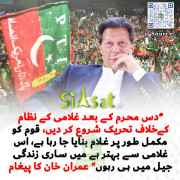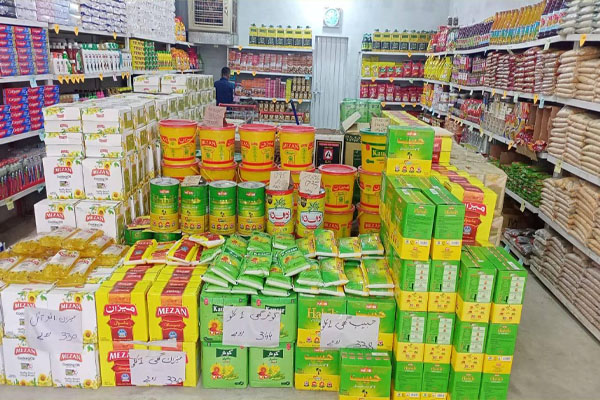Tuesday, July 20, 2010
Average worth of Pak MPs is $900,000 but only a few pay income tax
ISLAMABAD: Much of Pakistans capital city looks like a rich Los Angeles suburb, says a report published in New York Times. Shiny sport utility vehicles purr down gated driveways. Elegant multistory homes are tended by servants. Laundry is never hung out to dry.
But behind the opulence lurks a troubling fact. Very few of these households pay income tax. That is mostly because the politicians who make the rules are also the countrys richest citizens, and are skilled at finding ways to exempt themselves.
That would be a problem in any country. But in Pakistan, the lack of a workable tax system feeds something more menacing: a festering inequality in Pakistani society, where the wealth of its most powerful members is never redistributed or put to use for public good. That is creating conditions that have helpedspread an insurgency that is tormenting the country and complicating American policy in the region.
It is also a sorry performance for a country that is among the largest recipients of American aid, payments of billions of dollars that prop up the countrys finances and are meant to help its leaders fight the insurgency. Though the authorities have tried to expand the net in recent years, taxing profits from the stock market and real estate, entire swaths of the economy, like agriculture, a major moneymaker for the elite, remain untaxed.
This is a system of the elite, by the elite and for the elite, said Riyaz Hussain Naqvi, a retired government official who worked in tax collection for 38 years. It is a skewed system in which the poor man subsidizes the rich man. While Pakistans income from taxes last year was the lowest in the countrys history, according to Zafar ul-Majeed, a senior official in the Federal Board of Revenue, the assets of current members of Parliament nearly doubled from those of members of the previous Parliament, the institute study found. The countrys top opposition leader, Nawaz Sharif, reported that he paid no personal income tax for three years ending in 2007 in public documents he filed with Pakistans election commission. A spokesman for Mr. Sharif, an industrialist who is widely believed to be a millionaire, said he had been in exile and had turned over positions in his companies to relatives. Taxes are the Achilles heel of Pakistani politicians, said Jahangir Tareen, a businessman and member of Parliament who is trying to put taxes on the public agenda. .He paid $225,534 in income tax in 2009, a figure he made public in Parliament last monthIf you dont have income, fine, but then dont go and get into a Land Cruiser. The rules say that anyone who earns more than $3,488 a year must pay income tax, but few do. Akbar Zaidi, a Karachi-based political economist with the Carnegie Endowment, estimates that as many as 10 million Pakistanis should be paying income tax, far more than the 2.5 million who are registered. Out of more than 170 million Pakistanis, fewer than 2 percent pay income tax, making Pakistans revenue from taxes among the lowest in the world, a notch below Sierra Leones as a ratio of tax to gross domestic product.
In this country, no one asks, How did you get that flat in Mayfair? said Shabbar Zaidi, a partner at A. F. Ferguson & Company, an accounting firm in Karachi, referring to an affluent area of London. Its a very good country for the rich man. Chauffeurs, servants, big houses. The question is, who is suffering? The common man. Tareen, the member of parliament, said when he first tried to pay, tax collectors refused to take the money, not wanting to rock the boat. He had to write a letter to a senior official to have it accepted. It was not always like this. Nasir Aslam Zahid, a former Supreme Court justice in his 70s, blames what he calls moral decay in Pakistani society, in which respect for rules has fallen, merit has been forgotten and cheating has become a way of life. In my time, it was considered a moral thing for a person to file a tax return, he said. Today, corruption has broken all records.
Source
Average worth of Pak MPs is $900,000 but only a few pay income tax
ISLAMABAD: Much of Pakistans capital city looks like a rich Los Angeles suburb, says a report published in New York Times. Shiny sport utility vehicles purr down gated driveways. Elegant multistory homes are tended by servants. Laundry is never hung out to dry.
But behind the opulence lurks a troubling fact. Very few of these households pay income tax. That is mostly because the politicians who make the rules are also the countrys richest citizens, and are skilled at finding ways to exempt themselves.
That would be a problem in any country. But in Pakistan, the lack of a workable tax system feeds something more menacing: a festering inequality in Pakistani society, where the wealth of its most powerful members is never redistributed or put to use for public good. That is creating conditions that have helpedspread an insurgency that is tormenting the country and complicating American policy in the region.
It is also a sorry performance for a country that is among the largest recipients of American aid, payments of billions of dollars that prop up the countrys finances and are meant to help its leaders fight the insurgency. Though the authorities have tried to expand the net in recent years, taxing profits from the stock market and real estate, entire swaths of the economy, like agriculture, a major moneymaker for the elite, remain untaxed.
This is a system of the elite, by the elite and for the elite, said Riyaz Hussain Naqvi, a retired government official who worked in tax collection for 38 years. It is a skewed system in which the poor man subsidizes the rich man. While Pakistans income from taxes last year was the lowest in the countrys history, according to Zafar ul-Majeed, a senior official in the Federal Board of Revenue, the assets of current members of Parliament nearly doubled from those of members of the previous Parliament, the institute study found. The countrys top opposition leader, Nawaz Sharif, reported that he paid no personal income tax for three years ending in 2007 in public documents he filed with Pakistans election commission. A spokesman for Mr. Sharif, an industrialist who is widely believed to be a millionaire, said he had been in exile and had turned over positions in his companies to relatives. Taxes are the Achilles heel of Pakistani politicians, said Jahangir Tareen, a businessman and member of Parliament who is trying to put taxes on the public agenda. .He paid $225,534 in income tax in 2009, a figure he made public in Parliament last monthIf you dont have income, fine, but then dont go and get into a Land Cruiser. The rules say that anyone who earns more than $3,488 a year must pay income tax, but few do. Akbar Zaidi, a Karachi-based political economist with the Carnegie Endowment, estimates that as many as 10 million Pakistanis should be paying income tax, far more than the 2.5 million who are registered. Out of more than 170 million Pakistanis, fewer than 2 percent pay income tax, making Pakistans revenue from taxes among the lowest in the world, a notch below Sierra Leones as a ratio of tax to gross domestic product.
In this country, no one asks, How did you get that flat in Mayfair? said Shabbar Zaidi, a partner at A. F. Ferguson & Company, an accounting firm in Karachi, referring to an affluent area of London. Its a very good country for the rich man. Chauffeurs, servants, big houses. The question is, who is suffering? The common man. Tareen, the member of parliament, said when he first tried to pay, tax collectors refused to take the money, not wanting to rock the boat. He had to write a letter to a senior official to have it accepted. It was not always like this. Nasir Aslam Zahid, a former Supreme Court justice in his 70s, blames what he calls moral decay in Pakistani society, in which respect for rules has fallen, merit has been forgotten and cheating has become a way of life. In my time, it was considered a moral thing for a person to file a tax return, he said. Today, corruption has broken all records.
Source

























